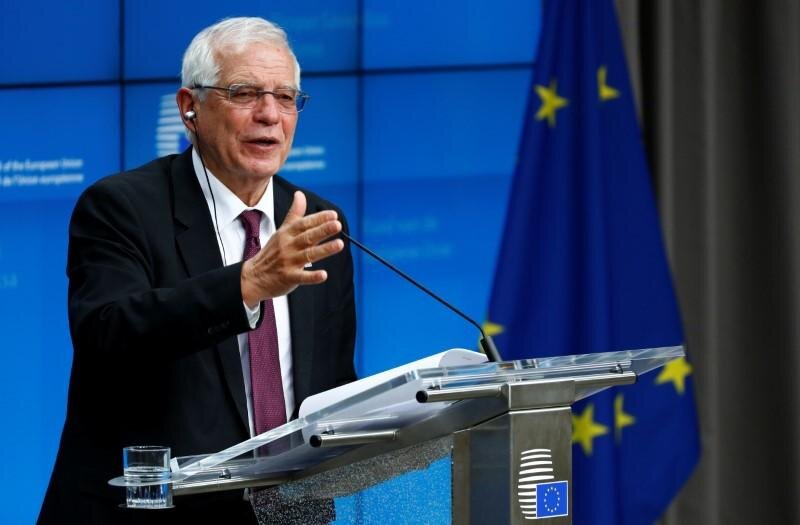Tehran to host EU's Borrell on Monday: Foreign Ministry

TEHRAN - The Foreign Ministry spokesman Abbas Mousavi announced on Sunday that European Union foreign policy chief Josep Borrell is scheduled to pay a visit to Tehran on Monday for talks with Iran’s senior officials, including Foreign Minister Mohammad Javad Zarif.
In late January, Borrell said that he had extended the time available to discuss ways to save the 2015 nuclear deal with Iran under a dispute mechanism triggered by France, Germany and Britain.
“There is agreement that more time is needed due to the complexity of the issues involved. The timeline is therefore extended,” Borrell said in a statement at the time.
Borrell met with Zarif on the sidelines of a conference in India on January 16.
On Jan. 14, Borrell was notified by Paris, London and Berlin that they had triggered the dispute mechanism, in theory starting a 15-day process to resolve issues with Iran. However, in practice it is not clear when the 15-day period should start because Iran has not formally recognized the consultation process, officials said.
Borrell said the joint commission that regulates the Iran nuclear deal will meet in February but did not give a date.
U.S. President Donald Trump unilaterally quit the nuclear deal in May 2018 and introduced the harshest ever sanctions in history on Iran as part of his administration’s “maximum pressure” strategy against Iran.
In response to this move, on May 8, 2019, Iran announced that its “strategic patience” is over and started to gradually reduce its commitments to the Joint Comprehensive Plan of Action (JCPOA) at bi-monthly intervals. At the time Iran announced if the European parties to the deal take concrete steps to shield Iran’s economy from the U.S. sanctions it will reverse its decision.
However, seeing no action by the Europeans, on January 5 Iran took the last and final step by removing all limits on its nuclear activities.
Iran’s moves are based on paragraph 36 of the JCPOA which “allows one side, under certain circumstances, to stop complying with the deal if the other side is out of compliance.”
Despite taking the last step, Iran has reminded the Europeans to fulfill their commitments in order to keep the deal alive.
The JCPOA was reached in July 2015 between Iran and the P5+1 (permanent members of the United Nations Security Council -- the United States, the United Kingdom, Russia, France and China, plus Germany) to find a long-term comprehensive solution to the Iranian nuclear issue. It was endorsed by the UN Security Council and supported by the EU.
U.S. Senator Chris Murphy said in January that Trump quit the JCPOA, just because it had President Barack Obama’s name on it.
“The Iran deal was working, but Trump ripped it all up just because it had Obama’s name on it,” Murphy said in a tweet.
Ben Rhodes, former Obama’s adviser, also said in July 2019 that Trump quit the JCPOA, because Obama negotiated it.
“Did anyone really need a leaked document from the UK Ambassador to know that Trump pulled out of the Iran Deal because Obama negotiated it?” Rhodes tweeted.
The Daily Mail reported in July 2019 that Kim Darroch, the former British ambassador to the U.S., had said Trump discarded the nuclear deal for “personality reasons,” as the deal had been agreed to by Obama,.
Darroch said the Trump administration was “set upon an act of diplomatic vandalism” in its decision to abandon the JCPOA.
Former British Foreign Secretary Jack Straw also told IRNA in an interview in October 2019 that Trump quit the nuclear deal because Obama signed it.
He said that the U.S. must admit that it made a wrong decision, urging the White House to return to the pact.
Straw said that the United States’ withdrawal from the JCPOA had “no logic”.
MJ/PA
Leave a Comment